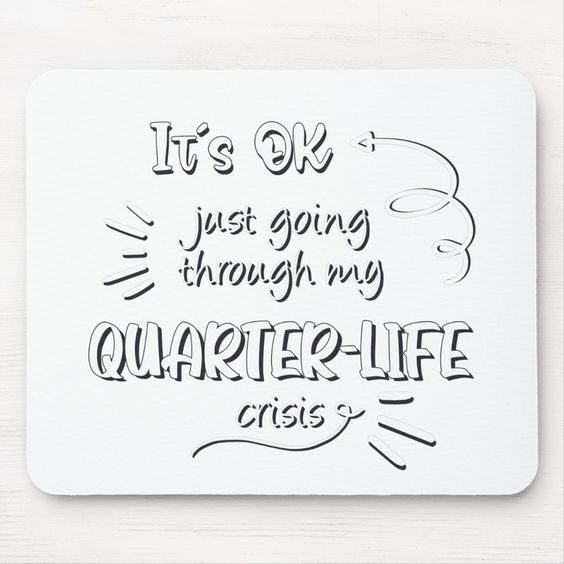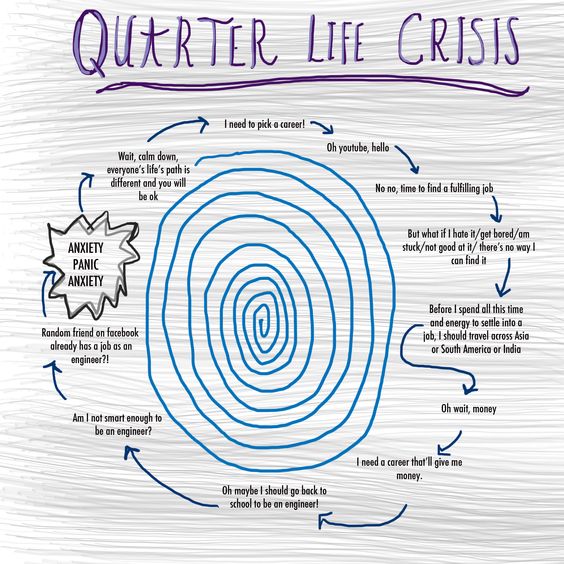Adulting 101
How To Prevent Cyber Bullying
Published
3 years agoon

Cyberbullying can be a serious problem that can have a significant impact on a person’s mental and emotional well-being.
Here are some steps you can take to help prevent cyber bullying:

Educate yourself and others
Educate yourself and others on what cyberbullying is and how to recognize it. Make sure you are familiar with the warning signs of cyberbullying, such as changes in behavior, mood, and withdrawal from social activities.
Set clear rules and expectations
Set clear rules and expectations for online behavior, and make sure everyone in your family or community understands the consequences of cyberbullying.
Encourage open communication
Encourage open communication among family members and friends so that they feel comfortable sharing any concerns or issues related to cyberbullying.
Use privacy settings
Use privacy settings on social media platforms to limit the amount of personal information that can be seen by others.
Monitor online activity
Monitor your child’s online activity, and be aware of who they are communicating with and what they are sharing.
Report cyberbullying
If you or someone you know is being cyberbullied, report it to the appropriate authorities or social media platform.
Seek support
If you or someone you know is experiencing cyberbullying, seek support from a trusted friend, family member, or mental health professional.
Remember that you are not alone, and there are people who can help.
You may like


Cristiano Ronaldo Surpasses 1 Billion Followers On Social Media


Social Media Friendships: The Illusion of Connection in a Digital World


How To Kickstart Your Content Creation Career On TikTok And Instagram


Kanye West Advises Wife Bianca Censori, To Stay Off Social Media


Ariana Grande Begs Fans To Stop Talking About Her Body
Adulting 101
Emoji Users May Be More Emotionally Intelligent, Study Finds
Published
1 year agoon
December 15, 2024
Research reveals that individuals who frequently use emojis in their text conversations with friends and family tend to have a higher level of emotional intelligence.

These expressive icons may be more than just playful additions to messages—they can reflect a deeper connection with one’s feelings.
The study, conducted in the U.S., surveyed 320 participants about their backgrounds and messaging habits. Findings indicated that those confident in using emojis demonstrated a strong capacity for understanding and managing emotions. Interestingly, while women were more likely to use emojis, individuals who identified as anxious or private were less comfortable incorporating them into their communication.
Dr. Simon Dubé, a psychologist from the Kinsey Institute at Indiana University, emphasized the significance of these digital tools in modern communication. “The way we interact during virtual conversations reveals more about ourselves than we might think,” he explained. “Emojis are not just smiley faces or heart icons—they are tools for conveying meaning and enhancing communication.”
According to Dr. Dubé, emojis play a vital role in bridging the gap created by the lack of non-verbal cues in virtual exchanges. “They meet the need for non-verbal support, helping to reduce uncertainty, adjust the tone, or increase the clarity of a message,” he noted.
This research highlights the evolving ways we adapt to digital communication, suggesting that emojis are more than simple decorations—they’re essential tools for emotional expression and connection in a text-driven world.

Do you feel like life’s throwing you one too many curveballs lately? Welcome to your quarter-life crisis—well, I wouldn’t call it that, more like a plot twist!

If you’re in your 20s or early 30s, chances are you’ve felt that unsettling mix of confusion, anxiety, and “What am I even doing with my life?” vibe. But hey, it’s not as grim as it seems. This phase, though overwhelming, is more of a growth spurt for your mind and soul.
Here’s How to Navigate this Rollercoaster with Style
1. Embrace the Chaos, Don’t Fight It
First off, let’s normalize the chaos. Life’s not a straight path, and the sooner you accept the zig-zags, the smoother your ride will be. Remember, everyone’s story is different, so don’t compare your journey to someone else’s Instagram highlight reel.
This period of uncertainty? It’s just the universe’s way of nudging you towards something bigger and better.
2. Reflect and Redirect
Feeling lost? That’s your cue to pause and reflect. Ask yourself the deep questions: What do I really want? What makes me happy? It’s okay if you don’t have all the answers right away.
Start small—maybe it’s time to pivot in your career, explore a new hobby, or even take a solo trip to clear your mind.
The goal is to redirect your energy towards what genuinely matters to you.
3. Surround Yourself with Positivity

Your vibe attracts your tribe, so keep it positive. Hang out with people who uplift you, not those who drain your energy. And don’t forget to celebrate the small wins—whether it’s finally nailing that work project or just getting out of bed when you didn’t feel like it. Positivity breeds more positivity, and that’s what you need right now.
4. Trust the Process
Trust me, everything you’re going through is preparing you for something amazing. You might not see it now, but hindsight’s 20/20, right? So, trust the process and keep moving forward, even if it’s just one baby step at a time. Your plot twist? It’s leading to a grand finale that’ll be worth the wait.
A quarter-life crisis isn’t the end of the world; it’s just a chapter in your story. Embrace the uncertainties, learn from them, and use this time to craft a life that’s true to who you are. After all, you’re the author of your own story and this plot twist? It’s just the beginning of something epic.

Adulting 101
Career Hopping: The Emotional Cost of Constant Reinvention
Published
2 years agoon
August 14, 2024
Remember the days when people would stick to one job for life? Yeah, that’s a distant memory for most of us. These days, switching careers every few years seems to be the norm, especially among millennials and Gen Z. It’s exciting, keeps things fresh, and opens up new opportunities. But beneath the surface, career hopping can take an emotional toll that’s often overlooked.
So, what’s the real cost of constantly reinventing ourselves in the professional world. Let’s face it—career hopping is both thrilling and terrifying. On one hand, it’s all about exploring new opportunities, challenging yourself, and refusing to settle for anything less than what you deserve. On the other hand, it’s a rollercoaster of uncertainty, where each leap into the unknown comes with its own set of risks and emotional challenges.
One of the biggest pressures driving career hopping is the fear of missing out (FOMO). We’re bombarded with success stories on social media—people landing dream jobs, starting businesses, and seemingly living their best lives. It’s hard not to compare yourself and wonder if you’re falling behind. This can push us to jump from one job to another, always in search of the next big thing, but never truly settling into a role.
But here’s the thing: constantly changing jobs can be exhausting. Each new position comes with a learning curve—new skills to master, new colleagues to understand, and a new work culture to adapt to. It’s a lot to take on, and the stress can quickly add up. The excitement of a fresh start can be overshadowed by the anxiety of having to prove yourself all over again.Moreover, there’s the emotional impact of leaving behind teams and projects that you’ve invested in. It’s not just about the work; it’s about the relationships you build along the way. Saying goodbye to colleagues who’ve become friends can be tough, and starting over in a new environment can feel lonely at times.So, how can we navigate the ups and downs of career hopping without losing ourselves in the process? Here are some tips:
– Reflect on Your Goals: Before making a move, take some time to reflect on your long-term career goals. What do you really want to achieve? Will this new role bring you closer to that goal, or are you just chasing the next shiny thing?
– Embrace Lifelong Learning: Instead of hopping from one job to another, consider ways to grow within your current role. Lifelong learning—whether through courses, certifications, or new projects—can help you stay challenged and fulfilled without the need to constantly change jobs.
– Build a Support System: Career hopping can be emotionally draining, so it’s important to have a support system in place. Whether it’s friends, family, or mentors, having people to talk to about your experiences can make a huge difference.
– Prioritize Mental Health: Don’t forget to take care of your mental health. The stress of career changes can take a toll, so make sure you’re practicing self-care, whether that’s through meditation, exercise, or simply taking time to relax.In the end, career hopping isn’t inherently good or bad—it’s about how you approach it.
By being mindful of the emotional impact and making decisions that align with your long-term goals, you can enjoy the benefits of career hopping without burning out. After all, the journey is just as important as the destination.

Meghan Markle Delays Netflix Series Premiere Due To LA Wildfires

Satire Meets Culture On New Comedy Series ‘A Very Kenyan Sketch Show’

Netflix Set To Debut A Gripping Kenyan Drama Series ‘Mo-Faya’
Trending

 Adulting 1013 years ago
Adulting 1013 years agoPersonal Brand Online (Part 2)

 Adulting 1013 years ago
Adulting 1013 years agoPersonal Branding (Part 1)

 A Chat With3 years ago
A Chat With3 years agoA chat with DJ Elye (the sunday skool drop out)

 A Chat With5 years ago
A Chat With5 years agoA MOMENT WITH SHARON WENDO, FOUNDER OF EPICA JEWELLERY

 Health1 year ago
Health1 year agoLet’s Get Mind, Body and Spirit Aligned!

 Adulting 1012 years ago
Adulting 1012 years agoRediscovering Yourself Through Solo Travel: The Mental Health Benefits of Venturing Alone

 Entertainment3 years ago
Entertainment3 years agoKenyan Movie Disconnect: The Wedding Planner Is Now Streaming On Netflix

 A Chat With3 years ago
A Chat With3 years agoFind out why ‘mutura is not a street food’ as Wanjira Puts it!






























